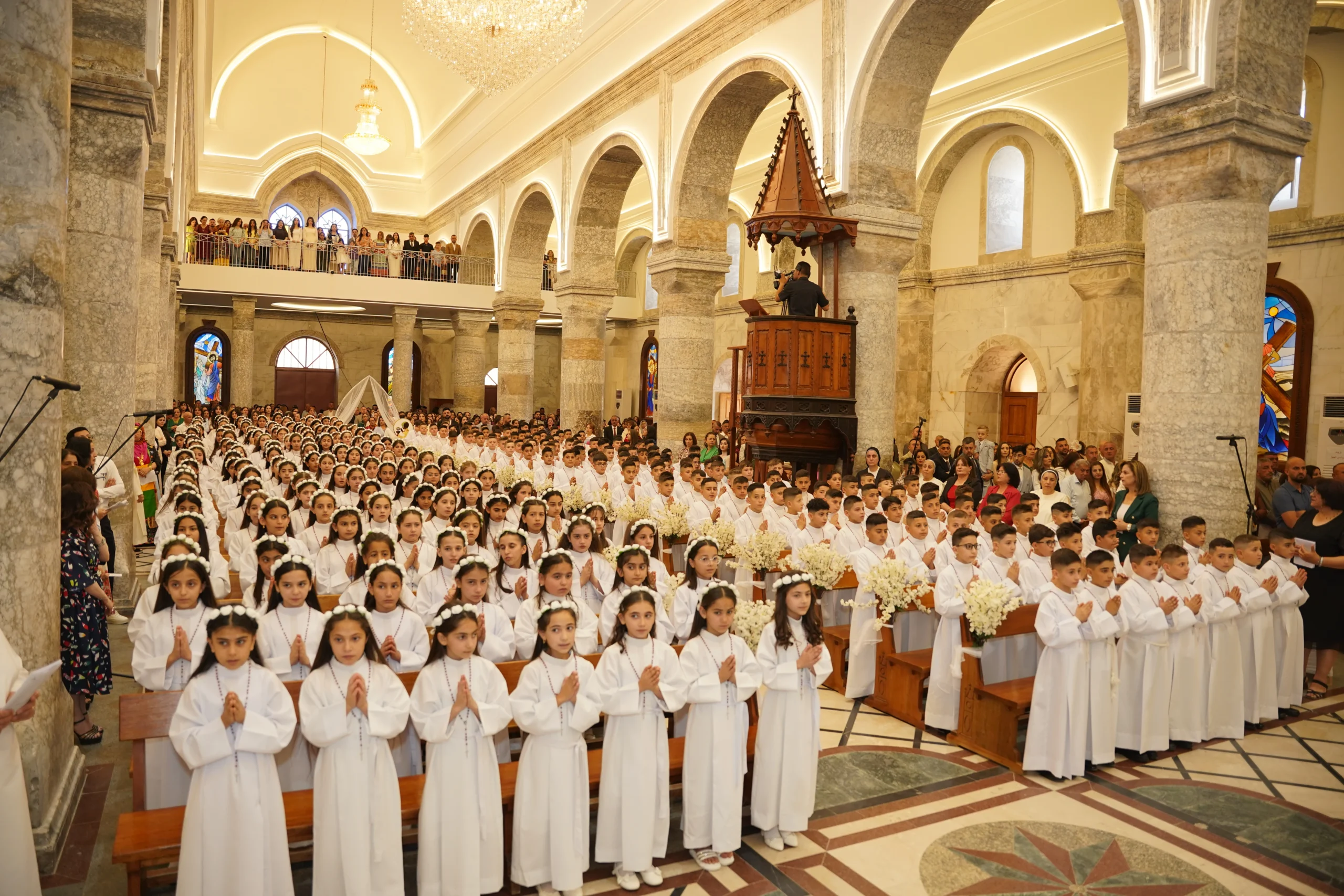Iraq’s Christian population, which once numbered around 1.5 million, has now dwindled to fewer than 300,000.
The decline of Iraq’s Christian population was primarily driven by insecurity, poverty, and unemployment. Weak government institutions, foreign interference, and inadequate law enforcement have made life increasingly difficult for Christians, prompting many to emigrate.
Before the fall of Saddam Hussein in 2003, Iraq’s Christian population was around 1.5 million, but today fewer than 300,000 remain. Persecution intensified after 2003, with armed groups specifically targeting Christian communities.
The 2014 ISIS assault on Nineveh and the subsequent occupation of the Nineveh Plain further severely affected the Christian population, forcing many to flee. Those who returned found their homes and churches destroyed, with ISIS replaced by Iranian-backed Shia militias.
However, there are signs of resilience as more than 1,000 children have recently celebrated their First Communion.
Reports from Catholic World Report highlight that Chaldean parishes in Baghdad have welcomed 50 children to the sacrament, while another 32 participated at the Syriac Catholic parish in the city.
Additionally, 11 children received Communion at the Syriac Catholic Church of Our Lady of Deliverance, the site of a deadly attack in 2010 that claimed the lives of dozens of worshippers and two priests.
In Qaraqosh, located in the Syriac Catholic Archdiocese of Mosul, over 460 children took part in First Communion celebrations across three separate ceremonies.
Christianity has deep roots in Iraq, with a history stretching back almost 2,000 years. Yet, the community has endured significant challenges, particularly in recent decades. The rise of the Islamic State in 2014 led to violence, destruction of churches, and the forced displacement of many Christians, especially from Mosul and the Nineveh Plains.
Today, the majority of Christians in Iraq reside in the Kurdistan Region, primarily in Erbil and Dohuk, with smaller groups in Alqosh and Qaraqosh. The community is mostly made up of Chaldean Catholics, along with some members of the Assyrian Church of the East.


